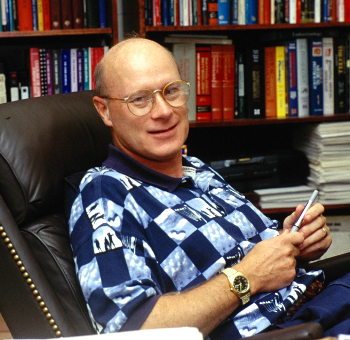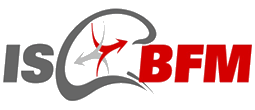- Home
- About Us
- Newsletters
- Meetings
- Membership
- Journal
- Scientific Interest Groups
- Helpful Links
In Memoriam, Charles (Charlie) W. Leffler 1947 - 2021Drs. David W. Busija, Massroor Pourcyrous, Jonathan H. Jaggar, and Helena Parfenova 
Dr. Charles (Charlie) W. Leffler, Ph.D. passed away on September 28, 2021. Charlie was a Distinguished University Professor of Physiology, Professor of Pediatrics, and the founding Director of the Laboratory for Research in Neonatal Physiology at the University of Tennessee Health Science Center (UTHSC) in Memphis, TN. He retired as University Distinguished Professor Emeritus in 2017. Charlie, a world-renowned scientist, received a B.S. from the University of Miami and an M.S. and Ph.D. from the University of Florida (UF). He completed a post-doctoral fellowship in the Department of Physiology at UF as an NIH Respiratory Physiology trainee with Dr. Sid Cassin. Charlie became an Assistant Professor at the University of Louisville (1976-1977) and then moved as an Assistant Professor to UTHSC in the Department of Physiology. Charlie was promoted to Associate Professor in 1981, full Professor in 1986, and in honor of his accomplishments, he was named as a Distinguished Professor in 2011. In 1990 Charlie became the Founding Director of the Laboratory for Research in Neonatal Physiology.
In addition, he served as Vice Chairman of the Department of Physiology from 1994 to 2007. Charlie maintained an active teaching presence and taught Respiratory Physiology and Cardiovascular and Pulmonary Aspects of Perinatal Physiology to medical students almost every year of his career. In addition, he trained nearly forty post-doctoral fellows. He chaired many scientific sessions at national meetings and was a member of Editorial Boards of several prestigious journals as well as a member of numerous NIH study sections. Charlie was the recipient of many awards and honors, including Alpha Omega Alpha Honor Medical Society (2011); Heart Hero, American Heart Association, Northwest Region (2010); Star Reviewer, American Journal of Physiology Heart and Circulatory Physiology (2008); UT Science Alliance Award (2001); National Heart, Lung, and Blood Institute MERIT Award (2000); and James W. Fisher Lectureship at Tulane University in 2013. Charlie’s research on the Control of the Neonatal Cerebral Circulation was continuously funded by the National Institutes of Health for four decades. Charlie, originally trained as a marine biologist and a pulmonary physiologist, published over 260 original research articles primarily addressing the control of the neonatal cerebral circulation in health and disease. Charlie began these studies in the mid-1980s with Dr. David Busija at a time when virtually nothing was known about the neonatal cerebral vasculature. At that time, neonatologists were increasingly faced with new and unanticipated clinical problems peculiar to the premature infants. A major strength of his research program was close collaboration with neonatologists, including Dr. Massroor Pourcyrous, who brought clinically-relevant and translational issues to the research in neonatal physiology. This collaboration is particularly important because the neonatal brain is more susceptible to injury from insufficient or inappropriate blood flow for maintaining metabolism than that of the adult due to rapid development and proliferation of neurons and blood vessels and a high susceptibility to inflammation. Charlie’s collaboration with Drs. David Busija, William Armstead, Massroor Pourcyrous, Masaaki Shibata, and Helena Parfenova led to a pioneer work in investigating the contribution of prostaglandins in the regulation of brain blood flow. Charlie was among the first to explore the glial-neuronal-vascular relationship in the cerebral circulation. His most recent groundbreaking studies in collaboration with Drs. Helena Parfenova, Jonathan Jaggar, and Massroor Pourcyrous involved investigating autocrine and paracrine communications within the vessel wall, with a specific focus on the endogenous gaseous transmitters nitric oxide, carbon monoxide, and hydrogen sulfide. Discovery that these gases are produced by cells and have diverse effects on the function of the vasculature as well as other tissues has revolutionized the way we think of intercellular communication and will lead to improved therapies. Charlie was an excellent investigator, educator, and mentor to numerous undergraduate, graduate, and medical students, postdoctoral and clinical fellows. He was a generous and supportive collaborator of many junior faculty at UTHSC, another strength that drove his research program in multiple innovative directions. Importantly, his mission on translationally relevant physiological studies in cerebral circulation will continue and be carried on for many years to come by his colleagues and former students. On a personal note, Charlie loved golf, water sports and winter skiing, and was devoted to his wife, Robin, his daughter, and his two granddaughters. He also liked to entertain, and a yearly event at his house was the “National Derby Day” party, which took place during the televised race and reflected his prior experience with living in Kentucky. Charlie was an exceptional human being, a humble and gracious person, a good friend, and a colleague to numerous people in his life. He was instrumental in advancing the career of many young people, and always looked for and emphasized the positive attributes in people and their research. |
